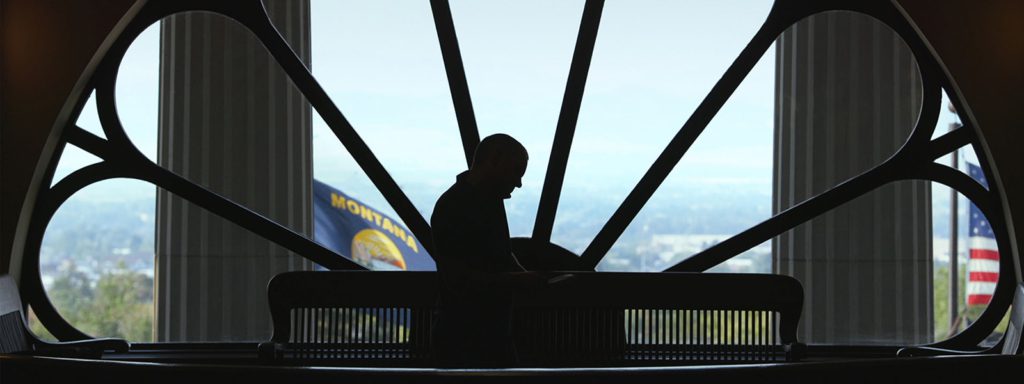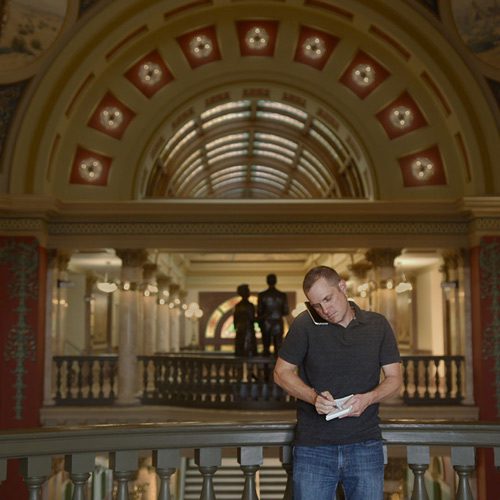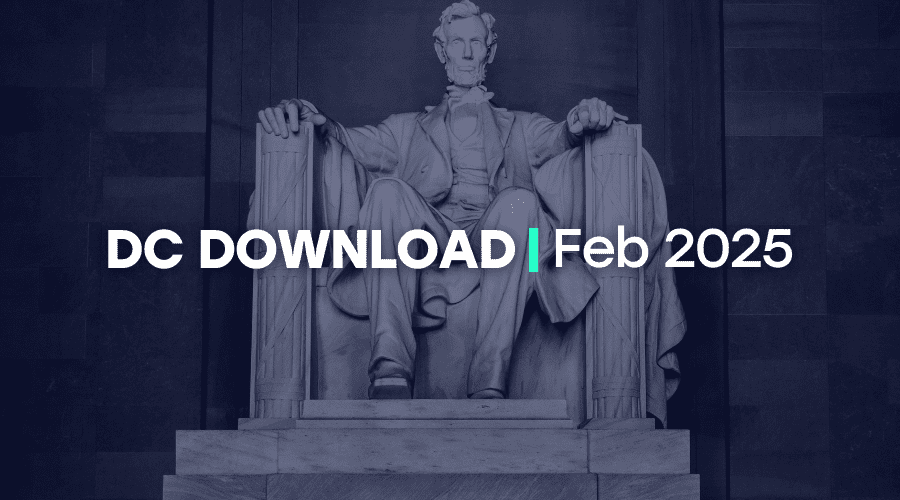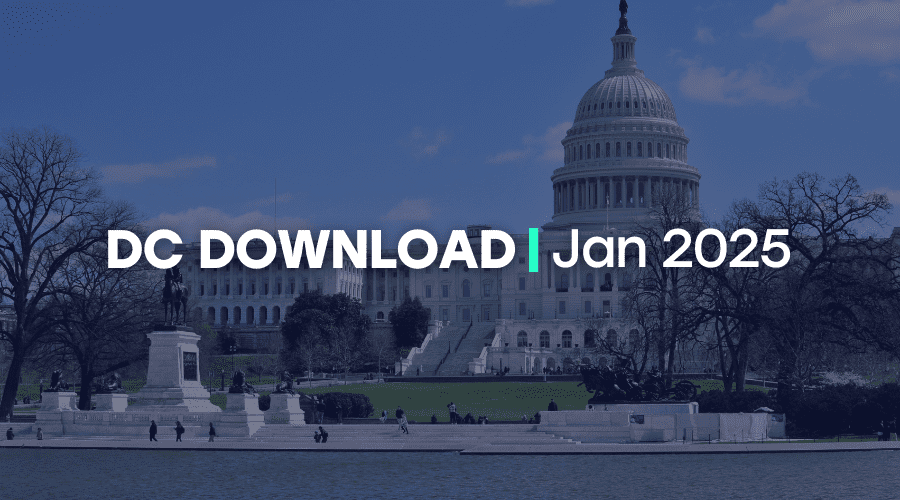[mp_row]
[mp_span col=”12″]
[mp_row_inner]
[mp_span_inner col=”12″]
I’ve lived in the Mid-Atlantic United States for the better part of eight years, and in that time, I’ve realized people know very little about my home state of Montana.
In my experience, one subset of non-Montanans that know an awful lot about the state—besides anglers, alpinists, skiers, paleontologists, and writers—are campaign finance nerds. That’s because for the century prior to 2012, Montana had some of the most robust campaign finance laws in the U.S. on the books. The fact that the laws outlasted the 2010 Citizens United ruling by the U.S. Supreme Court owed to two years of defiance before Montana lost a high-profile challenge to the decision in June 2012.
On first impression, the standoff could be read as Montana’s dogged assertion of independence from the power structures of the outside world. But that’s not what it was about. For Montana’s then-Attorney General, now-Governor Steve Bullock, who argued on behalf of Montana before the U.S. Supreme Court in 2012, the reluctance to follow the court’s Citizens United ruling was informed by the state’s history. That history—one of political corruption driven by a powerful corporation dating back to the early 1900s—is exactly where Montana-born documentarian Kimberly Reed’s new film begins.
I’m not qualified to get into the weeds on campaign finance policy. And in fairness, I think Reed went with Dark Money as the moniker for her documentary not because it’s a partisan buzzword, but because it’s literally about a concept that’s opaque by design. That’s of essence because one of the reasons that the documentary got enough traction to move beyond the film festival circuit into brick and mortar theaters is that it’s not for geeks—it’s for folks like me who either frequent their local independent cinema, have a vested interest in the health of our democratic process, or both. It’s from that standpoint that I’ll share some insights and impressions from Dark Money that we can all take to the bank.
1. Local reporters are heroes
The documentary follows the trail of investigative journalist John S. Adams. At the time of, and in the five years following Citizens United, Adams served as Capital Bureau Chief for Montana’s Great Falls Tribune. A 2015 wave of layoffs at several Montana newspapers came down particularly hard on reporters across news outlets staffing the on-site bureaus in Montana’s state capital of Helena. Among the reporters—many of whom were very senior and respected—that lost jobs during the mass staff reductions was Adams.
Reed’s film covers the shakeups closely, which were pivotal for two reasons. On one count, they reduced the capacity of state news sources to have staff follow the mounting instances of undisclosed campaign funding in Montana following the 2012 decision, including one fraught and high-profile case over what turned out to be illegal contributions to the campaign of a state lawmaker. On another count though, many of the casualties of the layoffs were reporters with decades of institutional knowledge on state politics, and on the issue of campaign finance in particular.
Despite losing his own income, Adams felt a moral imperative to continue—to use his words—following the money. So, like any intrepid Wisconsinite-gone-Montanan on a mission, he lived out of his truck for a stint while founding the nonprofit online news source Montana Free Press to continue reporting on campaign finance. His journey takes audiences with him beyond Montana, and then back again, but it’s less the range of his travels that stays with me than his overwhelming commitment to going after something that he thinks voters have a right to know: Who is trying to influence their elected officials, why, and what do they stand to gain if they are successful?
2. This subject is timelier than ever
Earlier, I mentioned that part of the reason this film is getting so much traction is because it’s framed, not for experts, but for a wide audience. Now that it’s screening across the country though, there’s yet another reason that the film has such timely appeal that has less to do with Reed’s finesse at storytelling, and everything to do with the waning trust in American government and diminishing faith in the strength of our democracy.
[/mp_span_inner]
[/mp_row_inner]
[mp_row_inner]
[mp_span_inner col=”8″]
[mp_text]
Earlier in the year, Edelman’s annual survey of trust levels across institutions recorded America as the least-trusting of its government of all 28 countries surveyed. In addition, America’s 14 percent decline in trust in government since the last report marked the single steepest drop for any country, in any institution, in the 18-year history of Edelman’s survey efforts. What our own President and CEO Dan Cardinali has come to refer to as a “trust crisis” is at the basis of an article series on modern civil society that Independent Sector launched with Stanford Social Innovation Review earlier this summer. And in social contract terms, it may be one of the most harrowing challenges to a healthy democracy.
Reed’s film frames the battle over undisclosed corporate contributions to political campaigns as one of free speech versus transparency. Those in favor of Citizens United tend to cite first amendment rights in court proceedings, and those against feel it’s the right of citizens to know who is trying to influence their elections, and why they want power over the resources that are in their districts. The free speech argument around political activity should sound familiar to those in the nonprofit space, and especially those that have been following efforts in Congress to repeal or weaken the Johnson Amendment, a law that has barred charities and churches from endorsing political candidates since 1954.
Where I think Citizens United and the Johnson Amendment battles parallel one another most is in the unintended consequences that arise from favoring the free speech argument. In the nonprofit space, lifting the politicking restrictions could force nonprofits to start pandering to partisan political pressure from donors, board members, volunteers, or politicians just to ensure they have mission-critical resources they need to operate.
[/mp_text]
[/mp_span_inner]
[mp_span_inner col=”4″]
[mp_text mp_custom_style=”mpce-prvt-11706-5b58893ae6d1a”]
Policy News Note
Last week, the House of Representatives passed a spending bill that includes a provision to significantly weaken the laws that protect charities from partisan politics.
Another recent development in the area of nonprofits and campaign finance included the recent announcement by the Trump Administration that nonprofits, other than 501(c)(3)s, would not have to disclose donors to the IRS. Campaign finance advocates, and Montana’s governor, are concerned that this policy change, previously proposed under the Obama Administration, combined with the Citizens United ruling, will obscure campaign financing even more by funneling resources through nonprofit organizations.
[/mp_text]
[/mp_span_inner]
[/mp_row_inner]
[mp_row_inner]
[mp_span_inner col=”12″]
[mp_text]
Though I understand the nuances of Citizens United less, I know why Montana is leery of it. It has to do with a historic episode. Like all of the most colorful Montana historic episodes, it takes place in Butte, where Reed begins Dark Money, and that’s actually an opportune transition to the next takeaway.
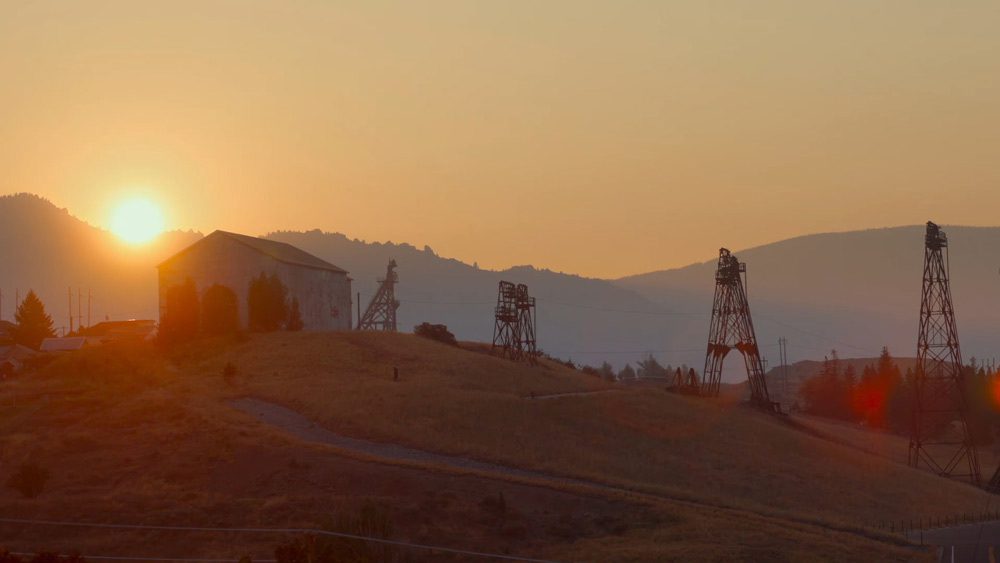 Headframes in Butte, Montana at dawn from ‘Dark Money’
Headframes in Butte, Montana at dawn from ‘Dark Money’
3. When it matters, the will of the people prevails
At the peak of its copper mining operations in the late 19th and early 20th centuries, Butte, Montana was the leading producer of copper in North America, and only South Africa rivaled it in worldwide metal production. As one of the largest trusts in the world for many decades, and certainly one of the largest mining companies in the world for much of the 20th century, the Anaconda Copper Company had a monopoly on Montana’s economy. In 1901, it financed the U.S. Senate campaign for one of its magnates, William Clark. That Montana went from a vigilante territory to a state whose economy was controlled by a massive corporation in a matter of three decades is mind-boggling in and of itself. When it was clear that one of the state’s three seats in federal office was essentially bought for a copper magnate through bribes and bullying, a reeling state electorate started on a path to exorcise corruption from all future elections.
Clark’s term ended in 1907, and the campaign finance laws that Montana wrote and enacted by 1912 remained intact until Citizens United. Reed begins with the story of Clark’s senate campaign and highlights the longstanding influence of corporate greed in Butte. But she counterbalances it with interviews and footage that ultimately emphasize that ordinary citizens were the ones who pushed for better policy that, for many years, made the Treasure State’s campaign finance laws the gold standard in terms of transparency. That’s all to say that just because the law is what it is today doesn’t mean it can’t be changed through the democratic process.
4. Nonprofits are leading the charge on transparency issues
Though Montana is not back to where it was with its laws governing campaign finance and transparency pre-2012, I was heartened to see Reed highlight two Montana nonprofits at the forefront of the battle, both of whom are quite familiar to Independent Sector. The first, Common Cause Montana, is the state’s chapter of the larger national group that was founded by John W. Gardner—also the founding chairman of IS. The second, Follow the Money, headquartered in Helena, Montana, is a comprehensive source of campaign contributions for candidates, political parties, and ballot measures in all 50 states. Those who joined us for the Public Policy Action Institute component of our past annual conferences have likely heard staff from Follow the Money speak on issues of transparency, particularly as they pertain to tax-exempt 501(c)4s.
Check out Dark Money’s Upcoming Screenings page for where it will be showing, plus all the events that Reed, John S. Adams, and others involved in this project will be attending for Q&As. Screenings are happening all over the country now through late September (And as a child of rural America, rest assured that I actually mean “all over,” not just the 20 largest U.S. cities).
Through October 31, Dark Money is free to stream as part of PBS’s POV documentary series.
Allison Grayson contributed to this article.
[/mp_text]
[/mp_span_inner]
[/mp_row_inner]
[/mp_span]
[/mp_row]
